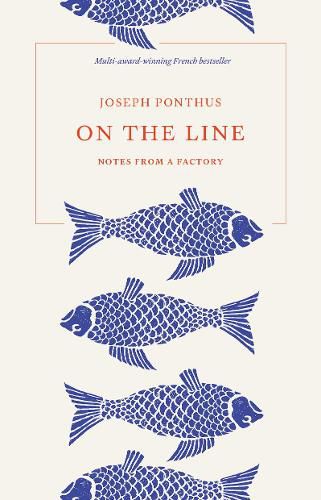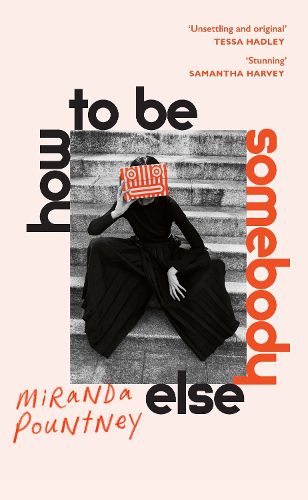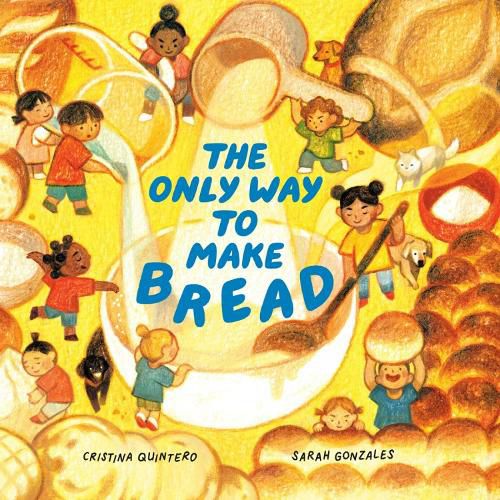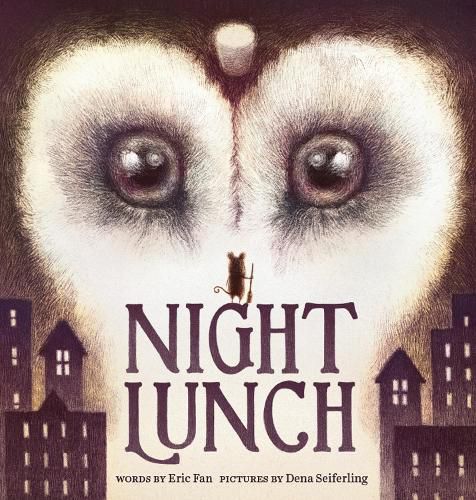On the Line: Notes from a Factory
Joseph Ponthus

On the Line: Notes from a Factory
Joseph Ponthus
_Factory you shall never have my soul
I am here
And I count for so much more than you
And I count so much more because of you
Thanks to you_
Unable to find work in his field, Joseph Ponthus enlists with a temp agency and starts to pick up casual shifts in the fish processing plants and abattoirs of Brittany. Day after day he records with infinite precision the nature of work on the production line: the noise, the weariness, the dreams stolen by the repetitive nature of exhausting rituals and physical suffering. But he finds solace in a life previously lived. Shelling prawns, he dreams of Alexandre Dumas. Pushing cattle carcasses, he recalls Apollinaire. And, in the grace of the blank spaces created by his insistent return to a new line of text - mirroring his continued return to the production line - we discover the woman he loves, the happiness of a Sunday, Pok Pok the dog, the smell of the sea.
In this celebrated French bestseller, translated by Stephanie Smee, Ponthus captures the mundane, the beautiful and the strange, writing with an elegance and humour that sit in poignant contrast with the blood and sweat of the factory floor. On the Line (À la ligne) is a poet’s ode to manual labour, and to the human spirit that makes it bearable.
Review
Alison Huber
I’ve been thinking a lot about On the Line since I read its final pages. Written in French (À la ligne) this book is a piece of autofiction in verse. Its narrator, like its author, is a social worker by education, who finds himself needing to labour in Brittany’s factories of industrial food production and animal processing, including at an abattoir and a fish and seafood plant. It is also an unusual contemporary record of a kind of workplace and work practice that is largely unfamiliar to the middle classes, but upon which access to everyday commodities depends.
Most striking in the narrative are the many descriptions of the mechanics of a long day’s hard work in these factories. This very long-time vegetarian found some of the scenes pretty challenging, but also oddly compelling, partly because they go some way toward explaining the detachment that is required for workers to encounter the death of animals as routine – something I’ve always struggled to understand. Alongside this is the internal voice of a person whose ambitions and imagination are elsewhere; as his aging body enacts the repetitive tasks on the line, he thinks about literature and history, about films and war and Marx, about his wife and his desire for his shift to end, about the exploitation of this casualised labour force which is often employed via a third-party agency, about the camaraderie with his fellow workers. All the while, he expresses the contradictory feelings of being trapped by, but reliant on and complicit in, late capitalism.
This book was a bestseller in France and won many literary awards in the year following its publication. It’s confronting and awash with sadness, but also the hope of the things – books, love, ideas, companionship – that give life shape, while acknowledging the essential work of the body that helps feed the mind and soul. Stephanie Smee’s sensitive translation of this unique work made me wish my schoolgirl French were better so I could
Alison Huber is the head book buyer at Readings.
This item is in-stock at 4 shops and will ship in 3-4 days
Our stock data is updated periodically, and availability may change throughout the day for in-demand items. Please call the relevant shop for the most current stock information. Prices are subject to change without notice.
Sign in or become a Readings Member to add this title to a wishlist.










